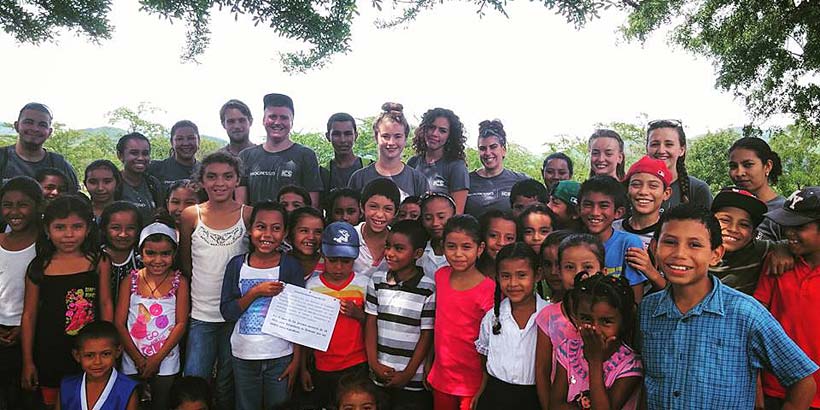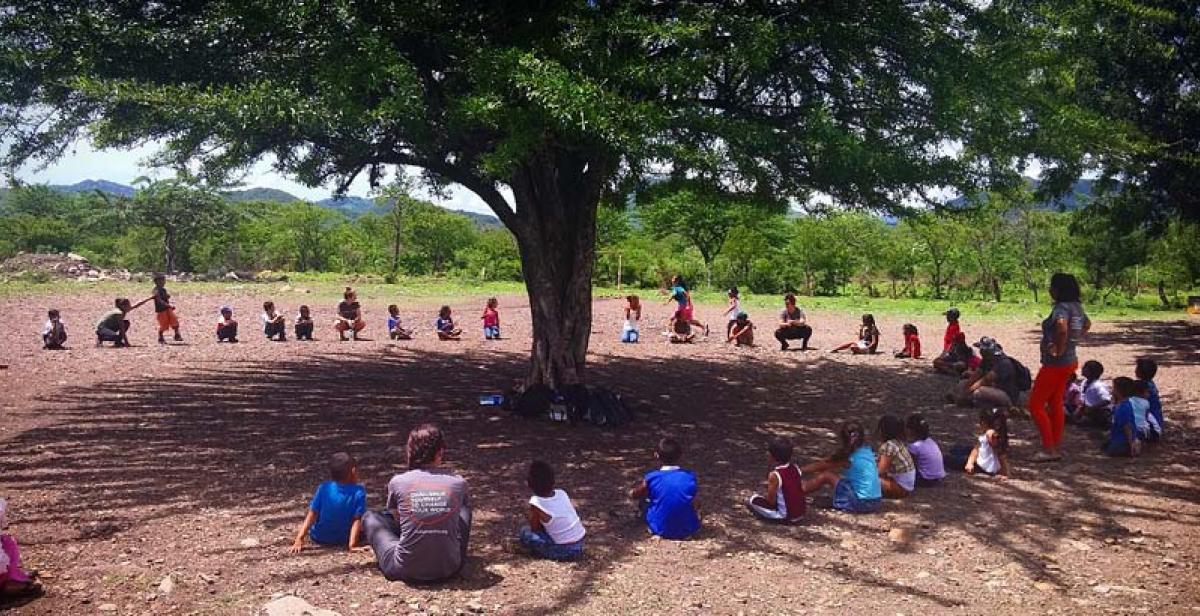A week in and aside from the torrential downpours that sweep in every few days with huge rolling clouds and dissolve the afternoon heat into a patchwork of ravines and dried riverbeds, there is little relief from the broiling sun. However, if not to the weather, the UK volunteers seem to be acclimatising to the local fauna. The wasps have become amicable neighbours, and even the ubiquitous scorpions, which were once the formidable villains of horror stories, have diminished in our minds to slightly bothersome crustaceans with limited depth perception. So much so that Andy, our team leader, has taken to sprinkling them on his Weetabix in the mornings.
I feel that the creepy-crawlies are not the only thing we’ve overcome. When fundraising before coming here, a friend of mine back home said he would not sponsor me on principle, stating that he was politically and morally opposed to what I was doing. While it’s easy to take the moral high ground when it saves you a tenner, he has good reason to be sceptical. Voluntourism is well cited as a dubious industry and why should he believe that this would be any different? After all, how could we, with our limited expertise, waltz into a rural community on the other side of the globe, take the hand of an unfamiliar culture and dance it through complex socio-economic conditions, all to come out the other side not having stood on toes, torn dresses and spilt the drinks?
However, a workshop from our partner organisation was re-assuringly re-assuring. ASOMUPRO (Asociación de Mujeres Productoras “Las Gaviotas”) embody much that is good in the world: gender equality, social justice, self-sustenance, sustainability, education, community and collectivism. The workshop was delivered by Lola, the emancipated female protagonist and ASOMUPRO’s Logistic Officer, who rides from town to town by motorbike, a cigarette dangling from her lips, educating rural communities on climate change and family planning. During the workshop she states proudly, with hands on hips, “I have four kids, but it was my choice”.
The organisation is an association of women producers, and the answer to female voices not being heard in the national union for agriculture. They occupy a void in institutional strategy to ensure financial and food security for rural families. Their work is a multi-faceted as Medusa’s split-ends. On one hand, they provide expertise on practical field techniques whilst, on the other, they run workshops on sexual health and domestic violence.
Here in the ‘Dry Corridor’, which is frequented by droughts, the goal is the construction of water harvesting systems, the instalment of eco-stoves in family homes and introducing methods for water and soil conservation. In conjunction with a wider strategy for the empowerment of women, it has the makings of a spicy social remedy.

There comes a time in all of our lives, perhaps whilst reading the ingredients list on a tin of spaghetti hoops in Tesco aisle three or when scooping your pet dog´s turd off the pavement with a glorified sandwich bag, when we stop and scream “WHY AM I HERE?” at a nearby child. If this glimpse into the existential abyss were to coincide with our time in Parcila we might be pleasantly surprised when the child looks up at us and explains that not only are we a labour-force, but we are also learning, directing funds into the project, raising its profile and engaging a wider demographic. Involvement of the young, like the national volunteers, is essential to the long-term success of any social development movement.
And so, informed, purposeful and dispelled of reservations, it was with a spring in our step that we went on our first school visit to introduce ourselves and play ‘Duck, Duck, Goose ‘ with a generation of excited faces who will hopefully still be benefitting from the work that is being done here in a generation’s time.
Written by ICS volunteer Sam Baron



